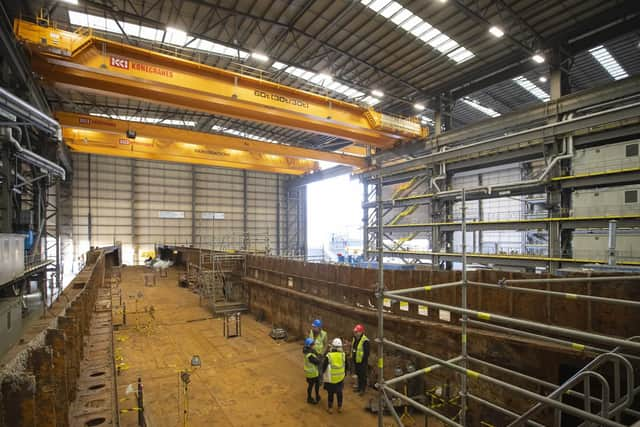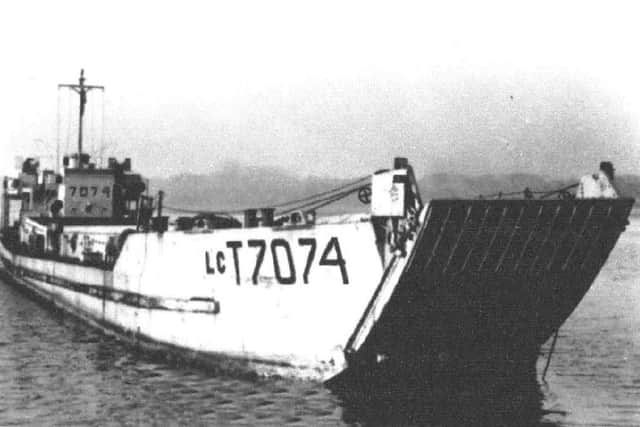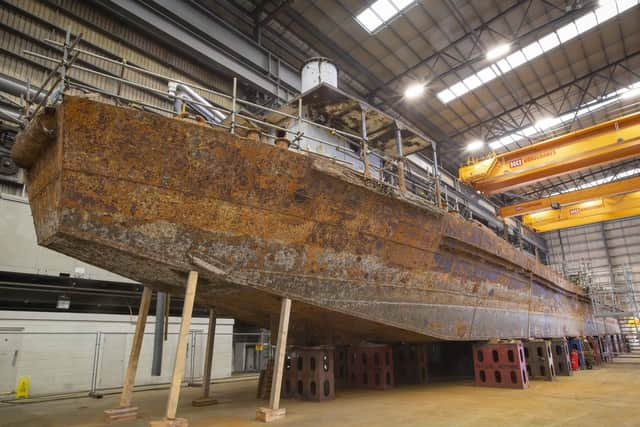Museum appeal to trace the history of D-Day landing craft


Seventy-five years after she was launched, Stephen Fisher has now been called ?in by the National Museum of the Royal Navy in Portsmouth Historic Dockyard to do some detective work on LCT 7074 - the last-surviving craft of ?its kind.
She carried 10 tanks across the Channel, landing on Gold Beach on June 7, 1944 and is now being restored ready to take pride of place outside the D-Day Story museum on Southsea seafront in 2020.
As a 12-month programme of conservation and refit begins, Stephen is keen to solve the puzzle surrounding LCT’s D-Day service. He is no stranger to maritime detective work, most recently identifying the two First World War Battle of Jutland wrecks languishing in Portsmouth Harbour.


Now he has been engaged by the National Museum to unravel the D-Day history of the 200-foot long craft, one of more than 800 LCTs that carried up to 10 tanks or equivalent armoured vehicles during ‘Operation Neptune’, the naval element of ‘Operation Overlord’.
Neptune was the largest amphibious operation in history, involving 7,000 ships and craft disgorging 160,000 soldiers on to the beaches of Normandy.
Stephen explained: ‘Without the workhorses of the Royal Navy like LCT 7074, D-Day would not have happened. We know about her service on D-Day – where she sailed from, where she landed and the fate of the tanks she carried - but we are after much more than this.
‘Whilst we know the names of her skipper and first officer, we would love to hear from anyone related to her crew, or who knows who served on her.


‘We would also love to hear memories or see pictures of LCTs returning from Normandy and their continued appearance at docks and embarkation hards around the Solent in the months following D-Day, during the build-up of forces in Normandy.’
He added: ‘Does anyone recall troops passing through the towns at the same time, after D-Day or have pictures of this? We are also keen to hear recollections of base staff and embarkation hard personnel. These were the people filling 7074 up each time she returned and their stories are as important as those of the men and women in France.
‘LCT 7074 is more than just a landing craft, she’s one of very few surviving vessels from the largest amphibious operation in history and an important link between our shore and France. We want to do her full story justice.’
The project Resurrecting A D-Day Hero is a partnership between the National Museum and Portsmouth City Council and secures a sustainable future for this exceptional survivor.


The project will create opportunities in Portsmouth and beyond, train apprentices and volunteers and create a unique venue. The National Lottery Heritage Fund awarded a £4.7m grant towards her conservation and final location site.
To submit information to Stephen about LCT 7074, please email [email protected]